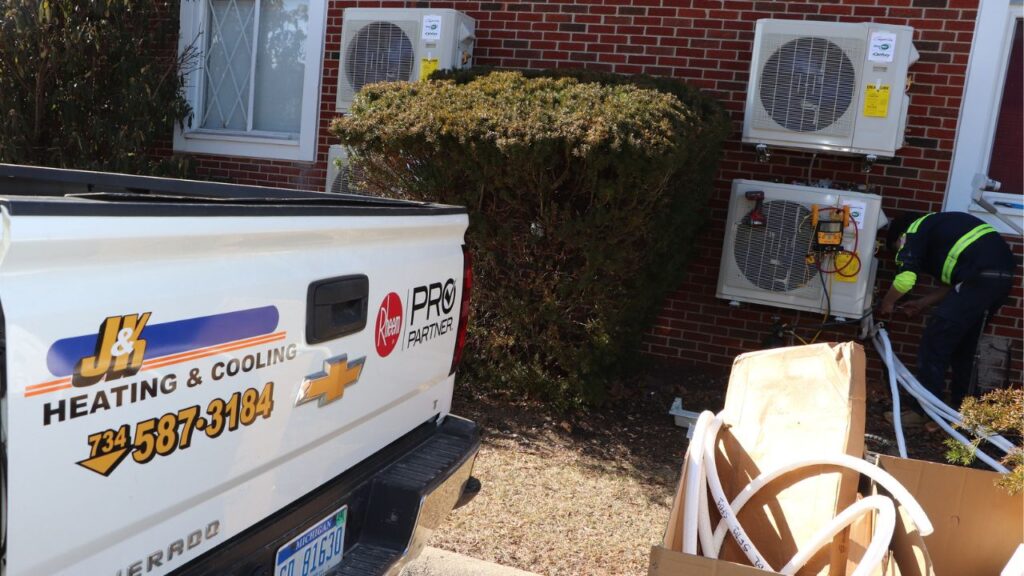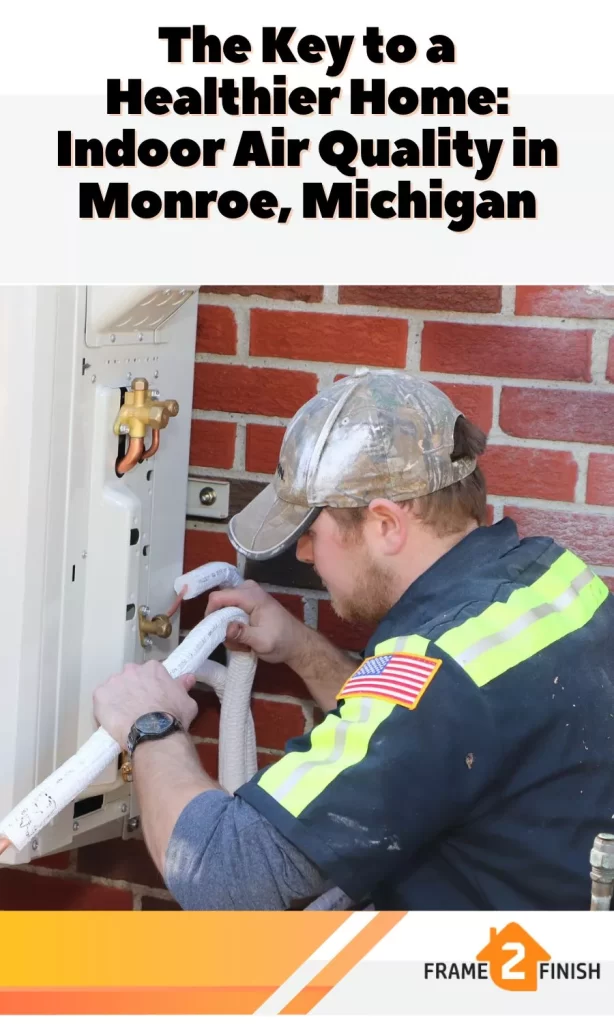Indoor Air Quality (IAQ) is critical to maintaining a healthy home in Monroe, Michigan. The air within our homes can be up to five times more polluted than the outdoor air, according to the Environmental Protection Agency (EPA). This indoor air pollution stems from mold, pet dander, pollen, smoke, and household cleaning products. Prolonged exposure to these pollutants can lead to several health issues, including allergies, respiratory conditions, and other chronic health conditions. By prioritizing IAQ, residents can significantly minimize these health risks, fostering a healthier, more comfortable living environment.
Indoor Air Quality in Monroe, Michigan
Monroe, Michigan, faces specific, unique challenges when it comes to maintaining healthy Indoor Air Quality. One primary factor is the region’s climate. With its cold winters and relatively humid summers, homes in Monroe are often closed up for temperature regulation, reducing ventilation and allowing pollutants to accumulate indoors. Monroe’s geographical location also plays a role, with specific outdoor allergens common in the area finding their way into homes, further impacting indoor air quality.
Another factor is the presence of older buildings in Monroe. These structures often lack modern HVAC systems capable of effectively filtering out pollutants. Moreover, older homes may contain building materials or insulation products that can deteriorate over time and release harmful particles into the air, such as asbestos or lead dust. Therefore, Monroe’s Indoor Air Quality is influenced by a complex interplay of environmental, geographical, and structural factors, necessitating a tailored strategy to improve it effectively.
How Poor Indoor Air Quality Affects Health
Poor Indoor Air Quality (IAQ) is linked to a myriad of health problems, both immediate and long-term. Short-term exposure may lead to irritable symptoms such as headaches, dizziness, fatigue, and eye, nose, or throat irritations. These symptoms are often temporary and treatable, usually dissipating once the individual is no longer in the polluted environment.
However, the genuine concern lies in the long-term effects of poor IAQ. Chronic exposure to indoor pollutants can lead to severe health conditions. Respiratory diseases, heart disease, and cancer are among the most severe health risks associated with poor IAQ. Furthermore, specific indoor contaminants like radon and asbestos are well-known carcinogens. Prolonged exposure to high levels of these pollutants can significantly increase the risk of developing lung cancer. Allergies and asthma can also be aggravated or even triggered by poor IAQ.
It’s clear that maintaining good IAQ is not just about comfort – it’s a critical part of protecting the health of residents. Consequently, understanding and mitigating the factors contributing to poor IAQ becomes a matter of utmost importance.
Ways to Improve Indoor Air Quality

Regular Maintenance of HVAC Systems
Regular maintenance of Heating, Ventilation, and Air Conditioning (HVAC) systems is essential for good Indoor Air Quality (IAQ). HVAC systems circulate air throughout your home and help control the temperature. If they’re not well-maintained, they can accumulate dust, mold, and other pollutants throughout your house. Regular maintenance, including cleaning and replacing filters, can ensure that these systems function efficiently, improving the overall air quality in your home.
The Importance of Proper Ventilation
Proper ventilation in your home can significantly improve your IAQ. It provides a means for outdoor air to circulate throughout your home, which can help to dilute indoor pollutants and remove them from your living space. Ventilation can be improved in various ways, including opening windows and doors, using exhaust fans in kitchens and bathrooms, and ensuring that your home’s ventilation system is in good working order.
The Role of Indoor Plants
Indoor plants can also play a role in improving IAQ. Certain types of plants, such as spider plants, English ivy, and snake plants, are known to absorb pollutants like formaldehyde and benzene, effectively acting as natural air purifiers. However, care should be taken to ensure indoor plants do not contribute to indoor humidity levels, which can foster mold growth.
The Use of Air Purifiers
Air purifiers can be a valuable tool to improve IAQ. They work by filtering out pollutants from the air, including dust, smoke, and allergens. When choosing an air purifier, it’s essential to consider the size of the area you need to purify and the types of pollutants you want to eliminate. While air purifiers can be highly effective, they should be used with other strategies for improving IAQ, such as maintaining your HVAC system and ensuring proper ventilation.
Take Action for a Healthier Home
At this point, it’s clear that maintaining or improving your Indoor Air Quality (IAQ) is vital for a healthier, more comfortable living environment in Monroe, Michigan. The health risks associated with poor IAQ are severe and should not be taken lightly. But the good news is there are steps you can take to mitigate these risks and improve your indoor air quality.
J&K Heating and Cooling offers comprehensive Indoor Air Quality services tailored to meet your home’s unique needs. With a deep understanding of the local climate, geographical, and structural factors that influence IAQ in Monroe, we are uniquely positioned to provide effective solutions that ensure the air you breathe inside your home is clean and healthy.
Take action before health problems. Call us today at 734-587-3184, and let’s work together to create a healthier home environment for you and your loved ones.





